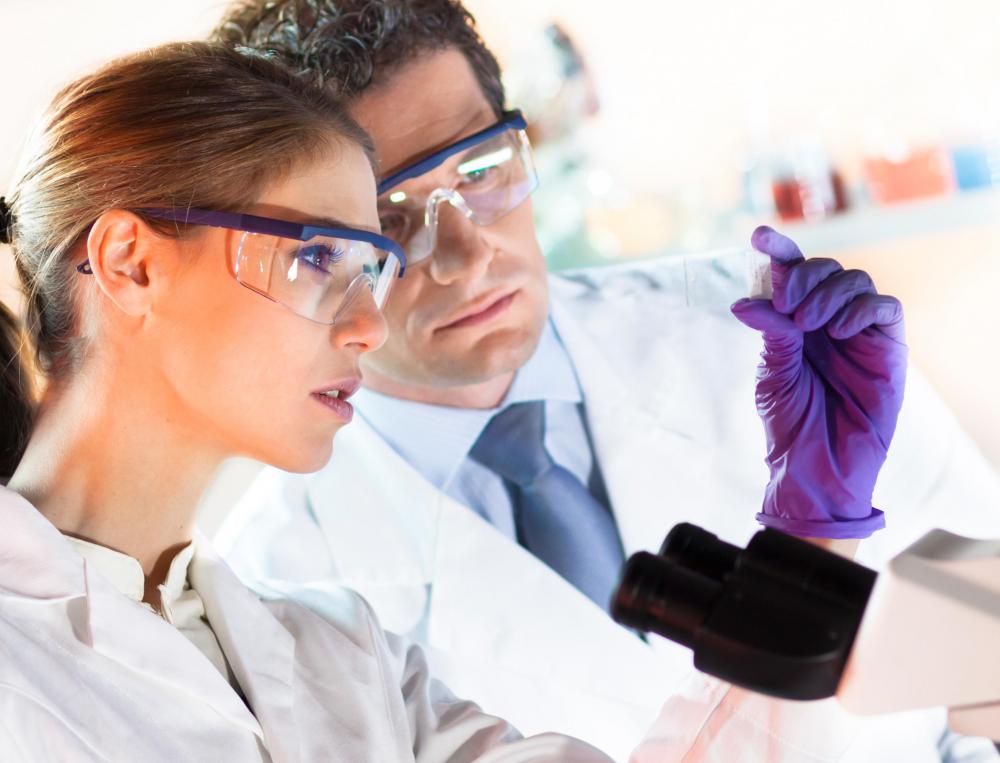At PracticalAdultInsights, we're committed to delivering accurate, trustworthy information. Our expert-authored content is rigorously fact-checked and sourced from credible authorities. Discover how we uphold the highest standards in providing you with reliable knowledge.
What is a Medical Oncologist?
A medical oncologist is a health professional who usually specializes in the diagnosis and treatment of cancer. Unlike surgical oncologists, who specialize in the surgical removal of tumors, a medical oncologist is an expert in drug and hormone cancer treatments, such as chemotherapy. Many cancer patients will have a medical oncologist as a primary physician throughout their treatment.
Becoming a medical oncologist requires several degrees and extensive training. In addition to an undergraduate degree, an aspiring oncologist must attend medical school and become certified as a doctor. After completing this training, continued education and practical work as an intern and resident physician pave the way to eventually working as an oncologist.

Medical oncologists typically undergo several years of advanced training in their specialty after becoming a doctor. Many work on ongoing drug research in order to advance or create new cancer-fighting drugs. Medical oncologists may choose to become board certified by a governing medical body such as the American Board of Internal Medicine. A board certification lets potential patients know that the doctor has undergone rigorous training in the specialty and met the standards of the certifying group.

A medical oncologist may be one of the first doctors a person with cancer will need to consult. After confirming the diagnosis, the oncologist can recommend treatment options to the patient. Medical oncologists often suggest chemotherapy or drug treatments, and may be able to sign qualifying patients up for clinical trials that may help them. Finding a good oncologist can be the first step to beating a cancer diagnosis. Most general practitioners will be able to provide patients with a list of references to diagnose or begin treating cancer.

Medical oncologists often work in conjunction with other doctors to create a integrated treatment program for patients. Medical oncology can often be of great assistance to surgical or clinical oncologists, as drug regimes are often simultaneous with radiation therapy and surgical tumor removal. By working as part of an cooperative team, medical oncologists are able to help patients aggressively combat cancer and remain in remission after treatments are completed.

In addition to advanced training in the field, medical oncologists must do continuous research on new and upcoming treatments. By staying up to date on drug research and discoveries, they ensure their patients are getting the most effective and best available treatment. Many medical oncologists continue to do medical research throughout their career, and may run clinical trials for new drugs and developing treatments.
AS FEATURED ON:
AS FEATURED ON:



















Discussion Comments
@SauteePan - I agree with you. These doctors have to be extra special because they have to deal with very sick people who are really scared. They also have to prescribe treatment like radiation and chemotherapy that might even cause a secondary cancer to develop.
I take my hat off to these doctors and nurses. I don’t think that I could work in this field. It would be too emotionally trying for me.
I just wanted to add that people involved in a medical oncology job like oncology nursing really have to be compassionate and be able to deal with higher levels of stress because patients in this field of medicine are getting a confirmation that they have cancer and it is devastating to hear.
I remember when my mother was in the hospital diagnosed with uterine cancer the gynecologic oncologist was so sweet to my mother and really respected our decision to let us tell our mother about her condition. She was a very caring doctor and explained how the tumor developed and what the staging of the disease was as well as the prognosis of my mother's condition.
Post your comments